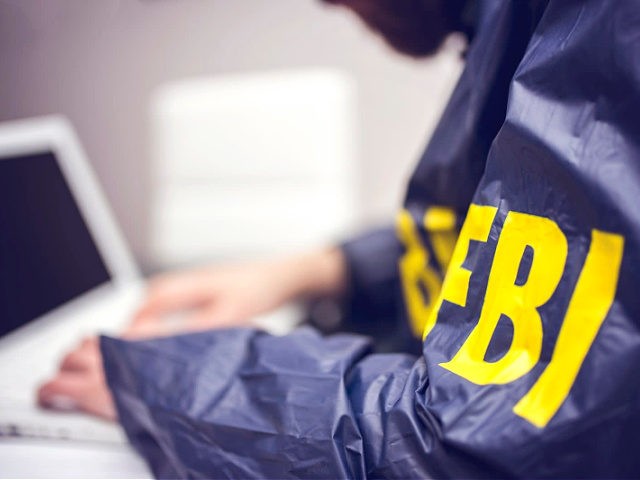The FBI and the U.S. Attorney’s office in Los Angeles misled the judge who signed a search warrant that led to more than $86 million in cash being seized, the Los Angeles Times reported.
FBI agents suspected criminal activity at U.S. Private Vaults, a Beverly Hills store with more than 1,000 private safe-deposit boxes. The FBI opened its investigation into the business after local law enforcement and federal agents spotted suspected drug dealers and purchasers walking in and out of the store.
FBI agents suspected criminal activity at the store because customers would arrive in cars with out-of-state license plates or rental cars, according to the search warrant affidavit.
“Based on my training and experience in money laundering investigations, Chicago, Illinois, is a hub of both drug trafficking and money laundering,” FBI agent Lynne Zellhart wrote. “I believe these patrons were using their USPV box to store drug proceeds.”
Zellhart also claimed that the only people renting a box anonymously from the Beverly Hills storefront are “those who wish to hide their wealth from the DEA, IRS, or creditors would.”
Despite not backing up their suspicions with any facts, the FBI agents applied for a search warrant to determine the validity of their suspicions.
However, recently unsealed court documents show that federal law enforcement misled the judge who ultimately approved the search warrant.
In the search warrant affidavit, assistant U.S. attorney Andrew Brown wrote, “The warrants authorize the seizure of the nests of the boxes themselves, not their contents.”
United States Magistrate Judge Steve Kim approved the search warrant, but explicitly limited the scope of the search.
“This warrant does not authorize a criminal search or seizure of the contents of the safety deposit boxes,” Kim wrote in the warrant.
Despite pledging not to seize the contents of the private storage boxes, and Judge Kim’s direct order not to, law enforcement ultimately took the items found inside the seized storage boxes.
The FBI agents also violated the bureau’s policies on taking inventory of seized items.
“Under FBI policy, it said, inspection of each box would “extend no further than necessary to determine ownership.” But agents’ inspection of the boxes went substantially further — just as the government planned, according to FBI records filed in court,” the Times reported.
However, the unsealed records also revealed that federal law enforcement had planned to confiscate the contents of each box the entire time.
As the Los Angeles Times reported:
By the time Kim got the warrant request, the FBI had been preparing an enormous forfeiture operation for at least six months, according to Jessie Murray, the chief of the FBI’s asset forfeiture unit in Los Angeles.
In the summer of 2020, she testified, Matthew Moon, then one of the highest-ranking FBI agents in Los Angeles, asked her if her team “was capable of handling a possible large-scale seizure” of safe-deposit boxes at U.S. Private Vaults.
Murray told him yes. She recalled joining a conference call in late 2020 and another in early 2021 to plan forfeitures of the box contents with the U.S. attorney’s office, other federal and local agencies, and “maybe even our legal forfeiture unit at [FBI] headquarters in D.C.”
The FBI agents also wrote a memo that confirmed the planned forfeiture of the items within the boxes, the Times reported.
As a result of the seizures, the FBI kept $86 million in cash, rare coins, gold, silver, and a plethora of luxury jewelry items.
The FBI and U.S. Attorney maintain they did not mislead the judge or ignore his search warrant limits.
“At no time was a magistrate misled as to the probable cause used to obtain the warrants,” FBI spokesperson Laura Eimiller said.
Federal prosecutors similarly claimed the FBI did not have to tell the judge “how later actions, such as criminal investigations against boxholders or forfeiture of box contents, would play out,” acceding to court filings.
Box holders who had their property seized by federal agents filed a class-action lawsuit alleging the FBI’s raid violated their constitutional rights.
“The government did not know what was in those boxes, who owned them, or what, if anything, those people had done,” wrote a lawyer for the nearly 400 box holders in the class-action lawsuit. “That’s why the warrant application did not even attempt to argue there was probable cause to seize and forfeit box renters’ property.”
The FBI ultimately posted a sign on the store’s window encouraging customers who had their property seized to step forward and claim it, without telling them they would be investigated, as one individual who tried to reclaim his property was.
The U.S. Attorney’s office did not prosecute the company’s owners pursuant to a plea agreement but ordered the business to pay a $1.1 million fine for laundering drug money. However, the Times reported that prosecutors admitted the business had no means to pay the fine.
Jordan Dixon-Hamilton is a reporter for Breitbart News. Write to him at jdixonhamilton@breitbart.com or follow him on Twitter.

COMMENTS
Please let us know if you're having issues with commenting.